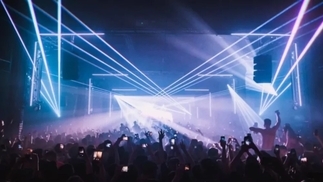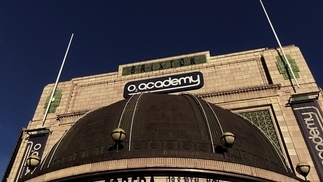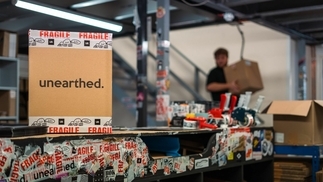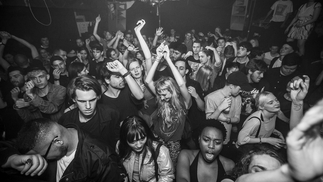Government support for music venues described as “woefully inadequate” amid Omicron spread
Grassroots music venues are alredy £90million in debt, with attendances and ticket sales plummeting

Fresh UK Government support for music venues has been described as "woefully inadequate".
An additional £1billion of funding primarily aimed at hospitality, events, and cultural businesses was confirmed by the Chancellor, Rishi Sunak, yesterday, 21st December. The decision is a direct response to days of lobbying following the unveiling of so-called Plan B COVID-19 restrictions across the country, introduced in a bid to curb rising infection rates resulting from the highly transmissable new omicron variant.
From the £1billion, £683million has been earmarked for firms that can prove they have been effected. A maximum of £6,000 will be paid to each business, administered by local authorities in the coming weeks. Further to this, an extra £102million is set aside to those hit hardest. Firms with less than 250 employees can also once again apply for Statutory Sick Pay to be reimbursed when absences are caused by coronavirus.
The Culture Recovery Fund, established last year to support music venues, museums, galleries, theatres, and more, has also received £30million, allowing arts organisations to apply for assistance this winter. Finally, the devolved governments of Scotland, Wales, and Northern Ireland have been given £150million, £50million, and £25million respectively. Crucially, though, despite pressure to do so, the furlough job retention scheme will not be reintroduced.
The funding announcement has been met with widespread criticism. New restrictions differ from country to country, so for example nightclubs are preparing to close in Wales on 27th December while venues in England will remain open. Venues in Scotland are now limited to a maximum of 100 people for indoor standing events, 200 for seated, and 500 if outdoor.
However, stark warnings issued by health officials about the risk omicron poses to the UK public and NHS overall have led to widespread cancellations and no-shows, devastating clubs, restaurants, theatres and more, during one of their busiest periods.
A new study by the Music Venue Trust (MVT) revealed a "catastrophic" drop in event attendance in recent weeks, up to 40% in some cases. Advance ticket sales and spend per head in grassroots venues have also declined since the Government announced so-called Plan B restrictions.
“We welcome any announcement from Treasury that recognises the very serious situation facing grassroots music venues, and other cultural and hospitality spaces, operators and staff," the Music Venue Trust said in a statement. "Regrettably today’s announcement seems a woefully inadequate response to the reality of the position.
“This sum is intended to mitigate losses for an as yet unknown period in which business has not just fallen, it has completely collapsed," it continued. “Regardless of any restrictions or limitations to business yet to be announced, business has already collapsed for at least six weeks — you can’t turn the live music industry on and off like a desk lamp, tours/events are cancelled. Not just today, or tomorrow, for the next three months.”
STATEMENT: RESPONSE TO THE ANNOUNCEMENT OF ADDITIONAL FUNDING SUPPORT FOR HOSPITALITY & CULTURE
We welcome any announcement from Treasury that recognises the very serious situation facing grassroots music venues, and other cultural and hospitality spaces, operators and staff. pic.twitter.com/3BPa7uCMjr
— Music Venue Trust (@musicvenuetrust) December 21, 2021
“This is the busiest time of the year for grassroots music venues, representing more than 20 per cent of their annual income being raised during the party season," Beverley Whitrick, Strategic Director of MVT, told NME. “Rapid declines in attendance at this time of year represent an exponential threat to the whole sector, and losses of this magnitude cannot be sustained without throwing hundreds of music venues into crisis mode and at risk of permanent closure. A ‘no show’ isn’t just lost ticket income, it’s lost bar take and excess staff costs."
The current crisis takes venues back to "exactly where we were in March 2020," added MVT CEO Mark Davyd, who says grassroots spaces are now over £90million in debt, with each address owing an average of £80,000 - £120,000. He also suggested confusing government messaging has created a "‘stealth lockdown’ with venues apparently able to open but in reality haemorrhaging money at a rate that will inevitably result in permanent closures unless the government acts quickly to prevent it."
These sentiments are echoed by the Production Services Association, which claims around 90% of event planning for the new year has now been postponed. Meanwhile, the Music Managers Forum and Featured Artists Coalition have issued a joint response, explaining they are "massively concerned" funding offers "nothing for artists and live industry professionals".
Mayor of London, Sadiq Khan, has joined the dissenting voices with a lengthy Twitter post, which said that "while any support is welcome, the package of support announced today by the Chancellor will barely touch the sides". Putting the situation into context, he explained that closing a single West End theatre production for one week can cost more than £250,000. Adding to concerns, the Night Time Industries Association estimates member venues will lose an average of £46,000 in the run-up to Christmas.
£250,000. That’s how much it costs to close a West End show—for one week.
While any Government support for our beleaguered retail, hospitality, nightlife and cultural sectors is welcome, grants of £6,000 won’t touch the sides.
My full statement: pic.twitter.com/5UVNBp2ArD
— Mayor of London, Sadiq Khan (@MayorofLondon) December 21, 2021





